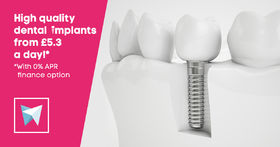As time goes on, teeth become more and more yellowish or greyish, and less shiny. This is not because of some inevitability, it is simply that the enamel- that shiny, pearly and extremely durable outer layer on teeth that keep them beautiful, radiant and above all healthy- is being eroded off. This does not have to be the case, as the enamel can be regenerated, and protected too, so that it is not lost in the first place.

Acid and friction
In one form or other, your enamel is lost because it is dissolved or because it is rubbed off of your cementum (the much harder yellowish or greyish layer underneath the enamel). Acids dissolve the bonds between fluorides and calcium molecules, making the enamel fall apart, while friction physically breaks those bonds, rubbing the enamel off. Here are 8 tips to help you keep your enamel.
1) How to drink soda
Soda is super bad, because it is full of sugar, which bacteria eat and multiply from, and it is acidic, meaning it destroys your tooth enamel. The best is if you don’t drink them at all, but if you must, make sure you use a straw, that way the sugary beverage and the acids in it don’t touch your enamel.
2) Vomiting
If you frequently vomit, either form acid reflux disease, bulimia or because of hyperemesis caused by pregnancy, you should take heed and wear a tooth guard. Although it may seem like too much to ask to remember to use a mouth guard before you will get sick, if you vomit frequently, keep a mouth guard with you, and protect your teeth.
3) Overly vigorous brushing
Many times we are our enamels worst enemy. Overly vigorous brushing is the cause of much tooth enamel loss, and can be the main reason behind loss of enamel. Make sure you are gentle but firm when you brush your teeth, there is no need to really rub the tooth surfaces.
4) Acidic foods
Some food stuffs, like vinegar, red wine, citric acid found I lemons, oranges, grapefruits and other citrus fruits, and red berries, along with coffee and tea have an acidic pH. This means that they are bad for your enamel, and can dissolve them. If you eta these foods, rinse your mouth out afterwards or chew some sugar free chewing gum to neutralize your pH levels, keeping your roal environment healthy and enamel friendly.
5) High fluoride
Certain foods, like cheese and yoghurt, as well as beans are high in fluoride, and eating these will replenish the tooth enamel material you have inevitably lost to acids and friction. Make sure the toothpaste you use is high in fluoride, and you can even use fluoride pastes, ointments and gels to cover your teeth for extra protection, if you see enamel loss on your teeth.
6) Wait a moment!
Do not brush your teeth for around half an hour after eating acidic foods, as the enamel is particularly brittle after coming into contact with acids. Wait a minute, and brush only afterwards, but you should rinse as soon as you have eaten these foods.
7) Bruxism
Some people inadvertently grind their teeth in their sleep at night. Some people grind their teeth knowingly, or semi-knowingly when they are awake during the day. It is a normal response to stress, and is quite natural, but it is still bad for your tooth enamel, and for the tooth surfaces as well, as the constant pressure and grinding motion wears them down. Wearing a night guard at night in your sleep may be a good way to remedy the situation, but distressing, and using meditation and relaxation techniques can also help.
8) Half year check-ups
If you feel that you are losing too much tooth enamel, it is absolutely vital that you go and see a dentist every six months. It is highly recommended that you do so anyway, but if your teeth are lacking in enamel or clearly have enamel loss, then it is more than just recommended; it is mandatory, if you want to keep your teeth healthy and free from decay. The dentist will be able to identify why you have enamel loss, and can give tips and products to help you restore your tooth enamel.






 Call
Call Send
Send Find us
Find us Connect
Connect